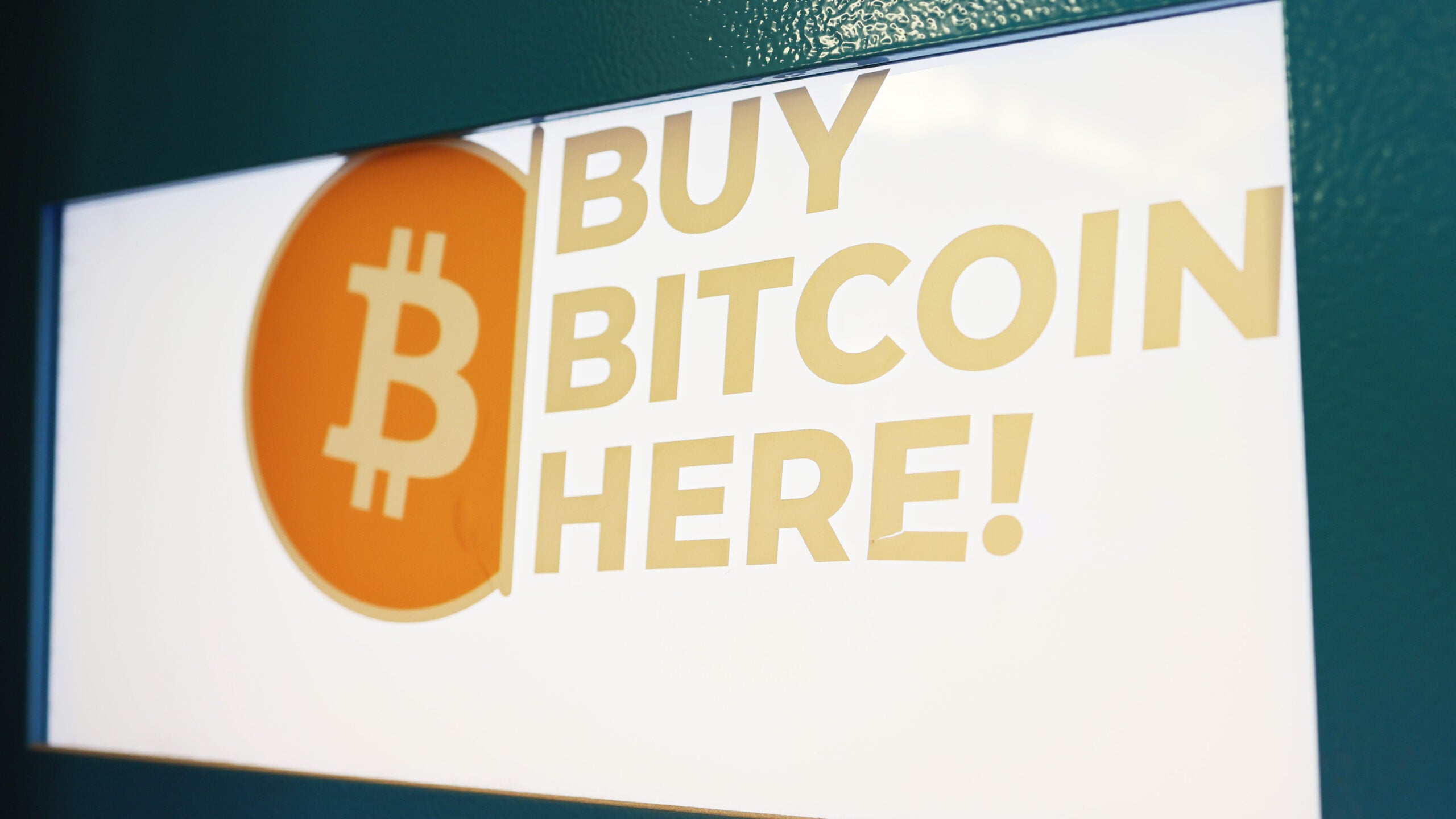Wisconsin’s pension fund purchased $164 million worth of shares in bitcoin earlier this year in two bitcoin exchange-traded funds, also known as ETFs. The investment was made after the Securities and Exchange Commission approved the creation of bitcoin ETFs in January.
The fact that these purchases are in exchange-traded funds is important, according to Paul Nylen, a University of Wisconsin-Whitewater professor and faculty director of UW-Whitewater’s Blockchain and Cryptocurrency Institute.
“This allowed pension funds and other investment boards to let somebody else actually custody bitcoin and have that fund — like Blackrock or Fidelity — issue shares,” Nylen told WPR’s “Wisconsin Today,” so that the investment board could buy the shares of a fraction of bitcoin as opposed to actually holding their own keys in bitcoin itself.”
Stay informed on the latest news
Sign up for WPR’s email newsletter.
Cryptocurrency comes with some well-publicized baggage. Global electricity usage associated with bitcoin each year is on par with the country of Australia, according to the U.S. Energy Information Administration. The Department of Homeland Security has linked cryptocurrency more broadly to money laundering, cybercrime and consumer scams.
Bitcoin shares can also be extremely volatile, with the price of one bitcoin falling from nearly $66,000 in 2021 to around $16,000 in 2022. bitcoin has since reached a new high of around $71,000 this year. But Nylen says the volatility is a good thing for long-term growth.
He spoke with WPR’s “Wisconsin Today” to break down what this purchase means for Wisconsin.
The following was edited for clarity and brevity.
Kate Archer Kent: The Wisconsin Investment Board bought shares of a bitcoin exchange-traded fund. So how does our state buying shares of an ETF differ from buying bitcoin directly?
Paul Nylen: In bitcoin, there’s this phrase that you’ll sometimes hear: “Not your keys, not your coins.” And unfortunately, I think for a lot of bitcoin’s history, there have been very poor custodians.
So if you think about (bitcoin exchanges) FTX and Mount Gox, and all these sort of famous news stories — and these were companies located in the Cayman Islands, or someplace like that, who eventually lost their bitcoin keys or did something fraudulent on their customer’s behalf. What we have now is name brand institutions, right? So Fidelity, Bitwise, BlackRock. And they’re the ones who actually hold the keys to the bitcoin.
Bitcoin is a bear asset, so whoever holds the private keys actually has the ability to move that bitcoin. So the state of Wisconsin is trusting a third party here, but investment boards have to do that. They can’t bring all their own gold into their own office, and they can’t physically hold their Apple shares. They need a third party. So, there is a difference there.
I don’t see a way in which a big state like Wisconsin or all their pension funds would actually custody their own bitcoin. They would let BlackRock or Fidelity do that. And so I think given that circumstance, it’s a great solution for Wisconsin.
KAK: The U.S. House passed legislation creating a new framework for how federal agencies would regulate cryptocurrency. We heard the CEO of the Crypto Council for Innovation calling this vote a “defining moment.” Would this new regulatory approach be good for Wisconsin?
PN: The best way to think about this is to ask, “What is the current regulatory approach?” And the current approach is nothing short of a mess. There’s been lawsuits going on with the Securities Exchange Commission for over a decade. All this is really doing is helping provide some clarity about which administrative bodies are in charge of cryptocurrencies. And so I think any clarity at this point is probably good clarity.
KAK: Should the Wisconsin Investment Board hang on to these new assets? When would they sell their shares of bitcoin?
PN: I’m actually gonna go a step further. I think Wisconsin’s a little under-invested. Wisconsin has put less than 1 percent of the fund in there. I think 1-3 percent allocation is probably where a lot of these boards are headed. I realize (the Wisconsin Investment Board) wants to dip its toe in. But bitcoin is a long duration asset. So in my opinion, it’s the last thing you sell.
Wisconsin Public Radio, © Copyright 2025, Board of Regents of the University of Wisconsin System and Wisconsin Educational Communications Board.




